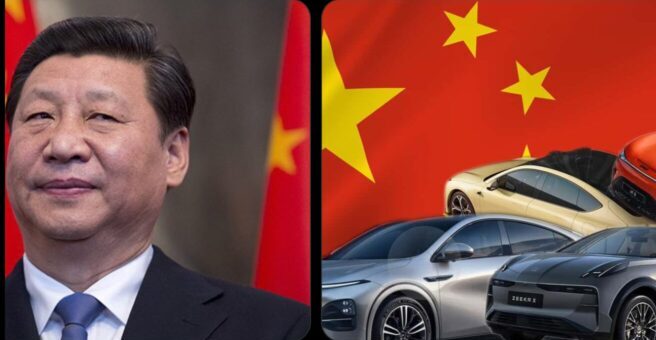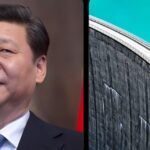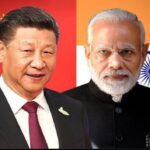China becomes the first country to produce 10 million electric vehicles (EVs) in a single year (2024)
China Becomes the First Country to Produce 10 Million Electric Vehicles (EVs) in a Single Year: A Groundbreaking Milestone in the EV Industry
In a historic achievement, China has become the first country in the world to produce 10 million electric vehicles (EVs) in a single year. This milestone, achieved in 2024, underscores China’s dominance in the global electric vehicle market and highlights the country’s ongoing commitment to sustainable transportation. With its rapidly expanding EV production capacity and robust infrastructure investments, China has cemented its position as a leader in the electric vehicle revolution.
This achievement marks a new chapter in the global transition to cleaner and more sustainable forms of transportation. As more countries and automakers strive to reduce carbon emissions and combat climate change, China’s ability to produce such a significant number of EVs in a single year is a testament to its strategic vision, government policies, and technological innovation.
A Historic Milestone: 10 Million EVs in One Year
China’s 10 million EV production milestone is a remarkable feat. In 2024, the country has set a new benchmark for global electric vehicle production, surpassing the previous record of 6.7 million EVs, which was set by China in 2023. This achievement is not just a testament to China’s manufacturing prowess, but also to the rapid evolution of its automotive sector, which has undergone a significant transformation over the past decade.
The milestone comes as part of China’s broader push to transition from traditional internal combustion engine (ICE) vehicles to more sustainable electric alternatives. The country’s production capacity for electric vehicles has expanded exponentially in recent years, driven by favorable government policies, advancements in battery technology, and growing consumer demand for cleaner transportation options.
To put this achievement into perspective, China’s 10 million EVs in a single year represent a substantial portion of the global EV market. In 2023, the global EV production figure stood at approximately 14 million units, with China accounting for around 50% of that total. By reaching 10 million EVs in 2024, China’s dominance in the electric vehicle sector becomes even more apparent.
China’s EV Industry: Key Factors Behind the Growth
China’s rapid rise to become the global leader in electric vehicle production can be attributed to several key factors that have shaped the development of its EV industry:
1. Government Support and Policies
The Chinese government has played a pivotal role in driving the growth of the electric vehicle market. Through a combination of direct subsidies, tax incentives, and favorable policies, the government has created an environment conducive to the development and adoption of electric vehicles. For example, China has offered subsidies to both manufacturers and consumers, reducing the upfront costs of EVs and making them more affordable to the general population.
The government has also set ambitious targets for the country’s transition to electric vehicles, with plans to have new energy vehicles (NEVs), including EVs, accounting for 40% of all vehicle sales by 2030. This regulatory push, coupled with investments in EV infrastructure such as charging stations and battery swapping networks, has created a robust ecosystem for electric vehicles to thrive.
2. Advancements in Battery Technology
Battery technology is at the heart of the electric vehicle revolution, and China has made significant strides in developing and scaling up battery production. The country is home to some of the world’s largest battery manufacturers, such as CATL (Contemporary Amperex Technology Co. Limited), which has emerged as a global leader in lithium-ion battery production. These advancements in battery technology have led to improved energy density, longer ranges, and lower costs for EVs, making them more attractive to consumers.
As the cost of EV batteries continues to decline, it becomes more feasible for both automakers and consumers to invest in electric vehicles. China’s leadership in battery production also positions the country as a dominant player in the global EV supply chain, as automakers around the world rely on Chinese-made batteries for their electric models.
3. Growing Consumer Demand
China’s growing middle class and the increasing awareness of environmental issues have also contributed to the rise in demand for electric vehicles. Consumers in China are becoming more environmentally conscious, and many are seeking greener alternatives to traditional gasoline-powered cars. With the availability of a wider range of EV models, including affordable compact cars and high-end luxury vehicles, the market for electric vehicles has expanded significantly.
China’s urban centers, where pollution levels have reached concerning heights, are seeing particularly high demand for EVs. Electric vehicles, with their zero-emissions nature, offer a cleaner alternative to traditional vehicles, and this has resonated with environmentally conscious consumers in cities like Beijing, Shanghai, and Guangzhou.
4. Infrastructure Development
China has also made significant investments in EV infrastructure, particularly in the expansion of charging stations and battery swapping networks. With more than 2.5 million charging points across the country, China leads the world in EV charging infrastructure, making it easier for EV owners to charge their vehicles. The convenience and accessibility of charging stations are key factors in the widespread adoption of electric vehicles, and China’s well-developed infrastructure has provided a solid foundation for its EV market.
In addition, the country is exploring innovative technologies such as battery swapping stations, where drivers can quickly swap their depleted EV batteries for fully charged ones. This concept has the potential to revolutionize the EV market by addressing concerns about charging time and range anxiety, further driving the adoption of electric vehicles.
5. Domestic and International Automakers
China is home to both domestic and international automakers that are heavily invested in the electric vehicle market. Domestic companies like BYD, NIO, and Xpeng have gained significant market share in China’s EV industry, while international brands like Tesla, BMW, and Volkswagen have also established a strong presence in the country. The competition among these companies has spurred innovation, leading to a diverse range of electric vehicle options at various price points.
The success of Chinese automakers in the EV space is not just limited to domestic markets. Companies like BYD and NIO are expanding their reach globally, with plans to enter European and North American markets. As China’s EV companies continue to innovate and improve their products, they are positioning themselves as formidable competitors in the global EV market.
Environmental and Economic Implications
The production of 10 million electric vehicles in a single year has significant environmental and economic implications, both for China and the global community. On the environmental front, the widespread adoption of electric vehicles is crucial to reducing greenhouse gas emissions and combating climate change. With China’s rapid shift to EVs, the country is playing a key role in the global effort to reduce carbon emissions from the transportation sector, one of the largest contributors to global warming.
China’s commitment to electric vehicles also aligns with its broader goals of reducing air pollution and improving public health. In urban areas, where air quality is a major concern, the transition to EVs offers a cleaner and more sustainable alternative to traditional vehicles that run on fossil fuels.
From an economic perspective, China’s EV industry is a major driver of growth, job creation, and technological innovation. As the world’s largest producer of electric vehicles, China has positioned itself at the center of the global EV supply chain. The country’s dominance in EV production is helping to stimulate economic growth in related industries, such as battery manufacturing, charging infrastructure, and renewable energy.
The Road Ahead: China’s EV Future
Looking ahead, China’s electric vehicle industry is poised for continued growth. With production now reaching 10 million EVs in a single year, the country is on track to meet its ambitious EV adoption targets. As technology continues to improve and consumer demand for electric vehicles rises, China’s role as the global leader in the EV industry is likely to become even more pronounced.
In the coming years, China is expected to ramp up its investment in research and development, focusing on the next generation of electric vehicles, including autonomous EVs, solid-state batteries, and innovative mobility solutions. The country’s government, automakers, and research institutions are likely to continue collaborating on initiatives that will drive the future of transportation, positioning China as a key player in the global EV revolution.
Conclusion: A Global EV Leader
China’s achievement of producing 10 million electric vehicles in a single year is a groundbreaking milestone that underscores the country’s leadership in the global transition to sustainable transportation. With robust government policies, technological advancements, and growing consumer demand, China has positioned itself as the undisputed leader in the electric vehicle industry. As the world increasingly shifts toward electric mobility, China’s influence will continue to shape the future of transportation and drive the global adoption of cleaner, greener vehicles.

















Post Comment